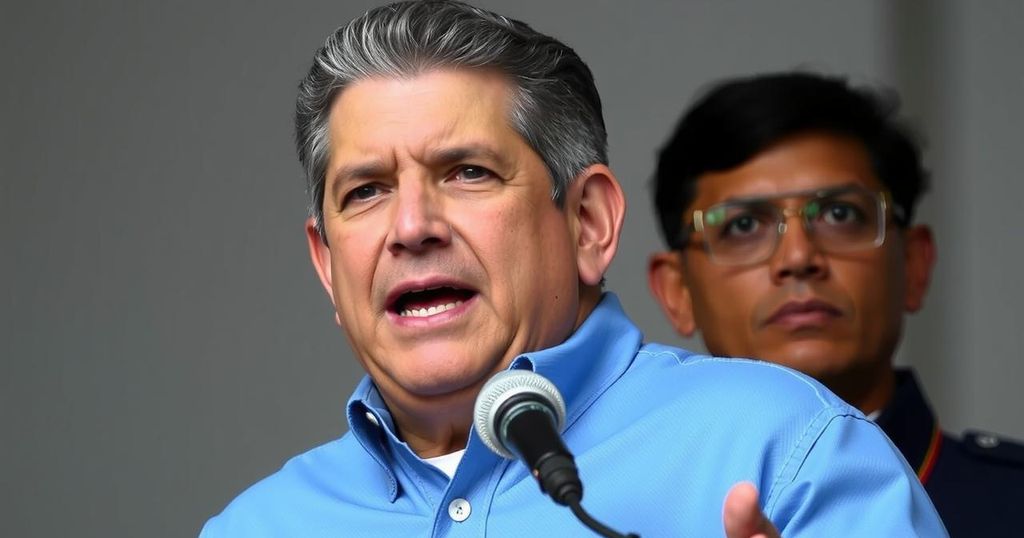Nicolás Maduro was inaugurated as Venezuelan president for 2025-2031 amid fraud allegations from the opposition, which claims Edmundo González Urrutia won the July elections. Though Maduro has been declared the winner by the controversial CNE, dissent from opposition parties continues. Key government officials expressed their loyalty to Maduro, but political tensions remain high.
On January 10, 2025, Nicolás Maduro was officially inaugurated for a new term as president of Venezuela, despite ongoing allegations of election fraud. The ceremony took place in Caracas, presided over by the ruling party-controlled National Assembly. Maduro asserted, “I swear before the historic, noble, and brave people of Venezuela and before this constitution that I will fulfill all its mandates,” signaling his commitment to governance under the framework of the Venezuelan constitution.
During the event, Maduro swore in using a copy of the constitution personally signed by the late Hugo Chávez. Key government officials attended, including Tarek William Saab, the attorney general, and Caryslia Rodríguez, the president of the National Electoral Council (CNE). Although the CNE declared Maduro the winner of the July 28 elections, the opposition contends that Edmundo González Urrutia was the rightful victor, claiming they possess 85% of electoral records substantiating their assertion. They published these documents online, through witnesses and electoral table members, contesting the government’s narrative, which dismisses the documents as fraudulent.
González Urrutia, a former ambassador who has recently engaged with multiple nations in the Americas, asserts his intent to assume the presidency. Concurrently, Defense Minister Vladimir Padrino López reaffirmed his allegiance to Maduro and the military’s support for his administration. This ongoing tension highlights the political divide in Venezuela as the Maduro government faces widespread resistance from opposition groups.
Nicolás Maduro, the current leader of Venezuela, has been in power since 2013 following the death of his predecessor, Hugo Chávez. His leadership has been marred by significant controversy, especially surrounding elections that various international observers and local opposition claim to befraudulent. The political landscape is polarized, with the opposition forming coalitions such as the Democratic Unitary Platform to contest governmental authority, asserting legitimacy over electoral processes. The CNE, perceived as biased, declares election results that favor Maduro, intensifying accusations of manipulated electoral outcomes.
The inauguration of Nicolás Maduro for the term 2025-2031 amid allegations of electoral fraud underscores the sustained political turmoil in Venezuela. With the opposition claiming victory for Edmundo González Urrutia, the legitimacy of Maduro’s presidency remains highly contested. Governmental assertions of loyalty from the armed forces aim to solidify Maduro’s control, yet the divided political landscape signals ongoing challenges for his administration in addressing democratic processes and public discontent.
Original Source: efe.com






